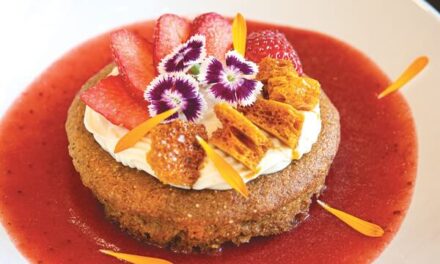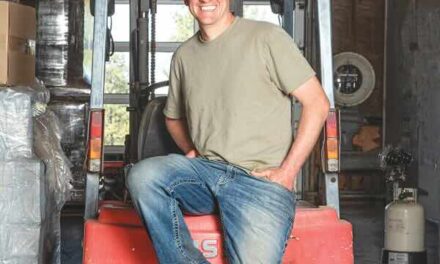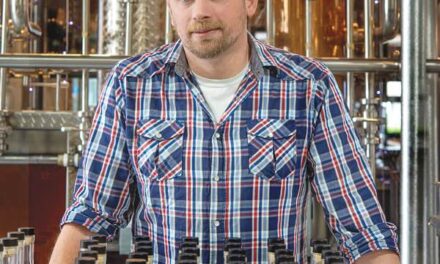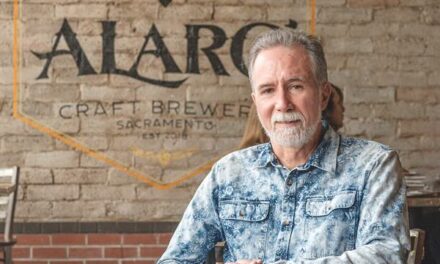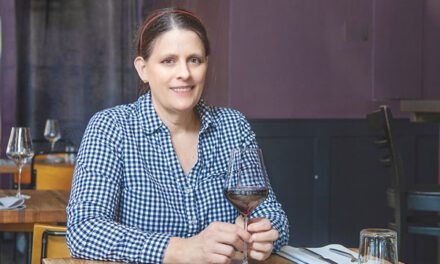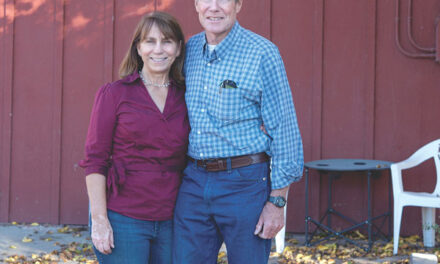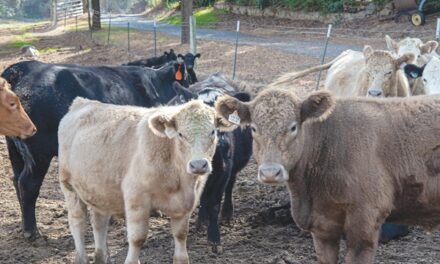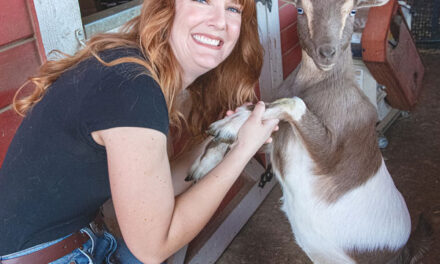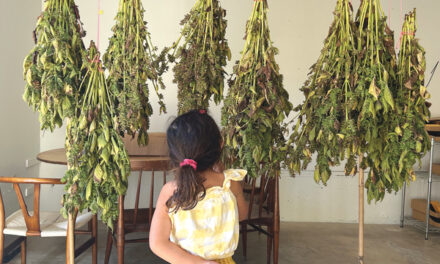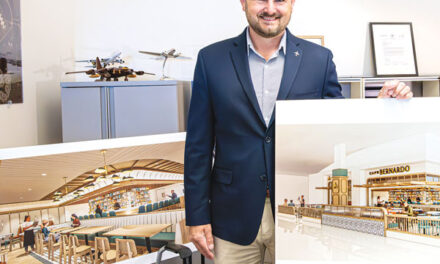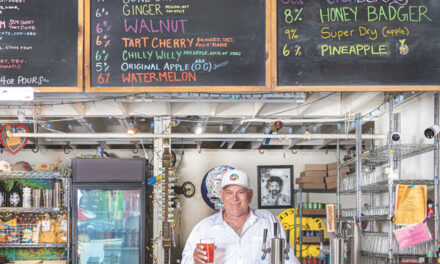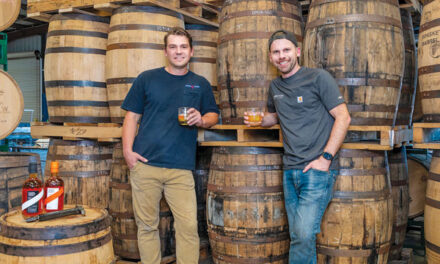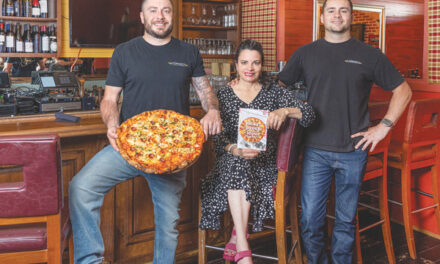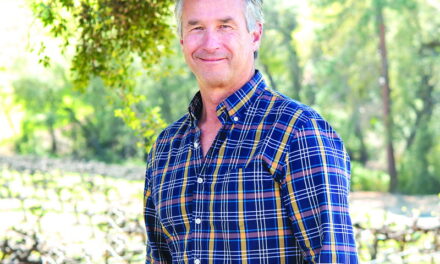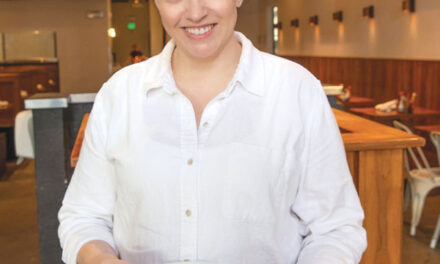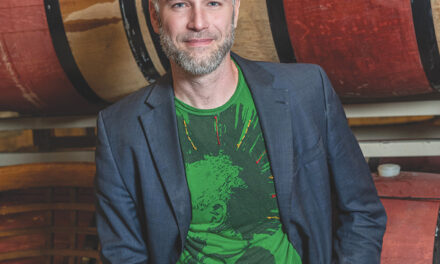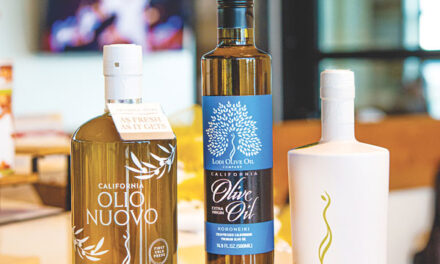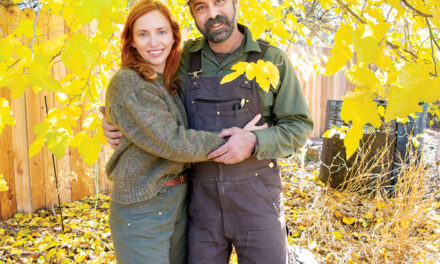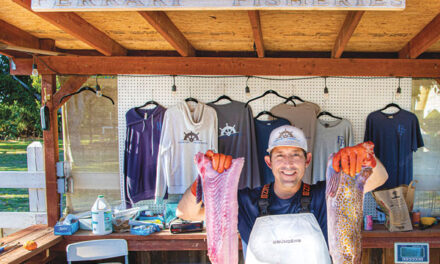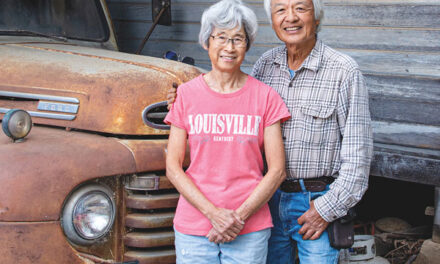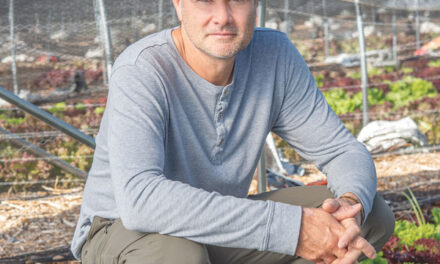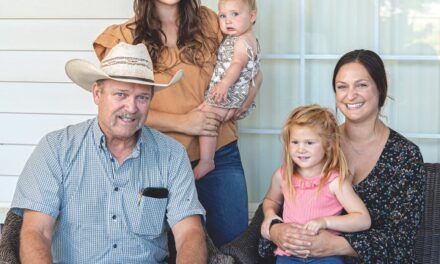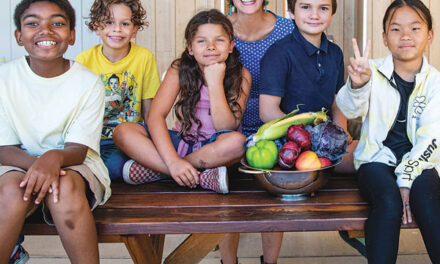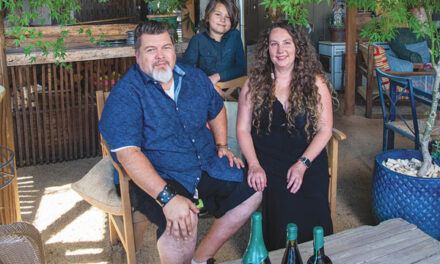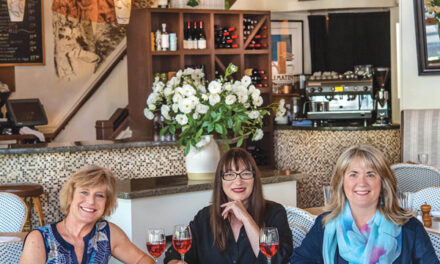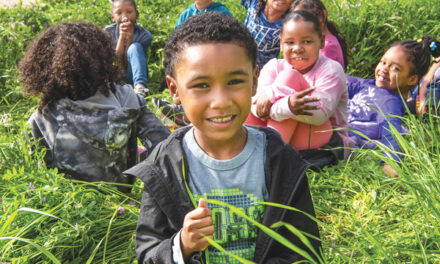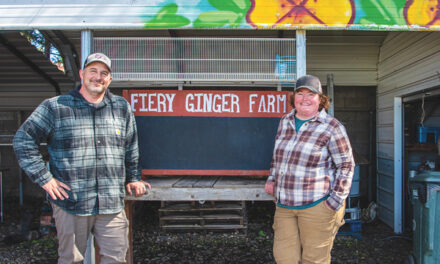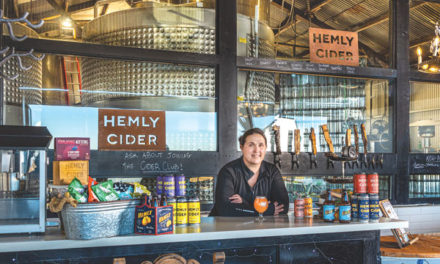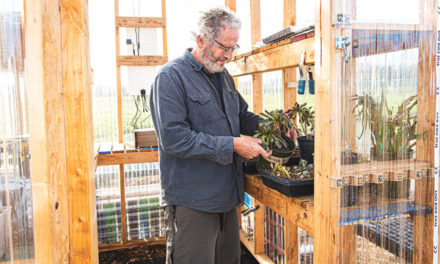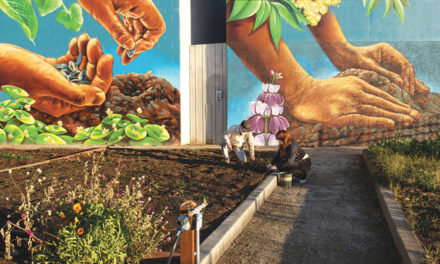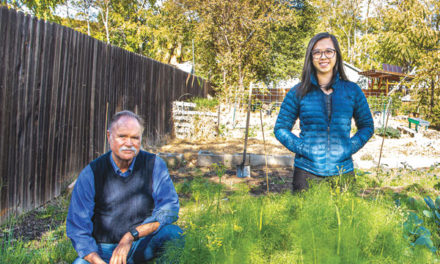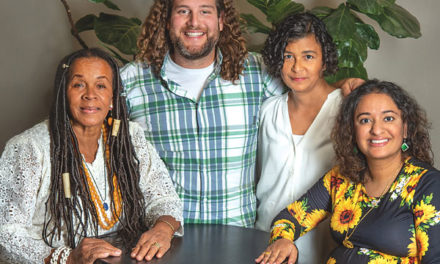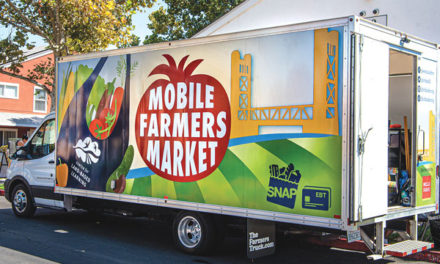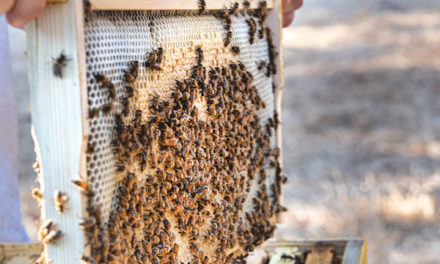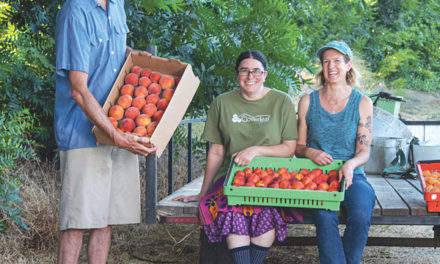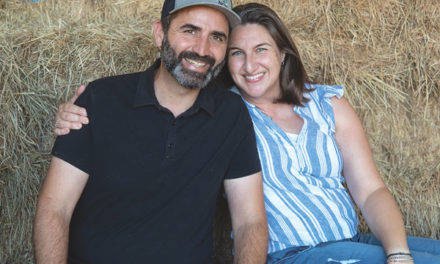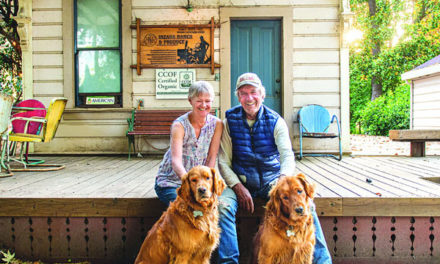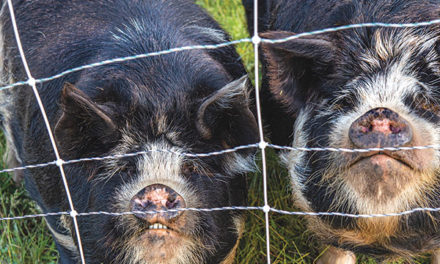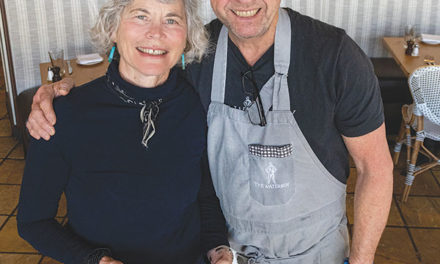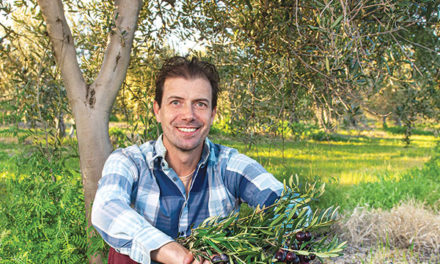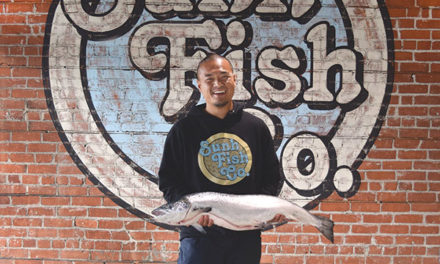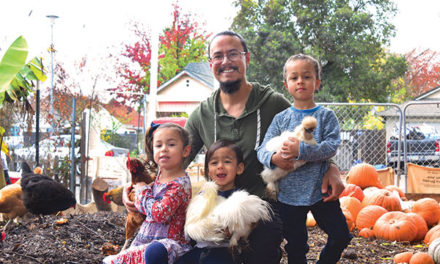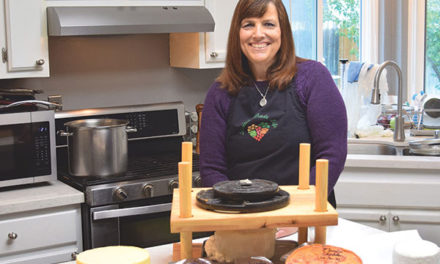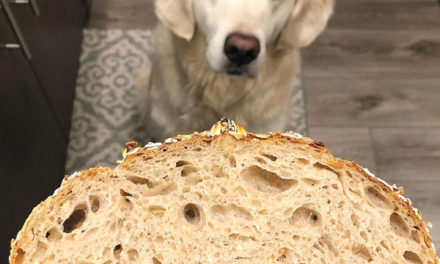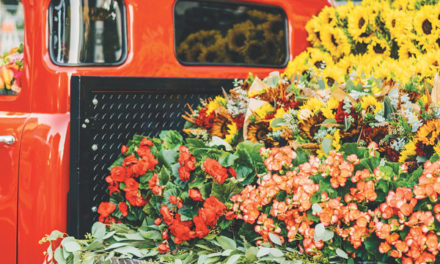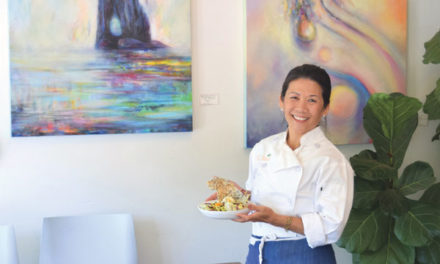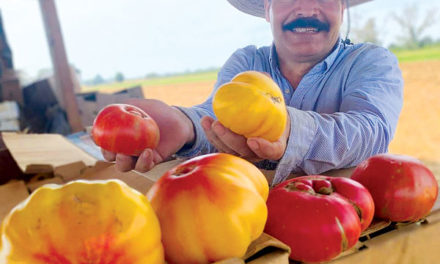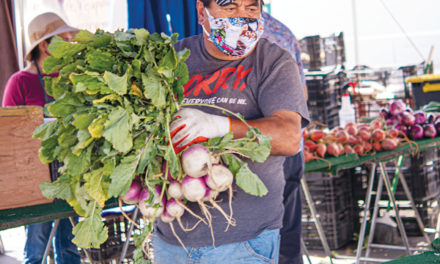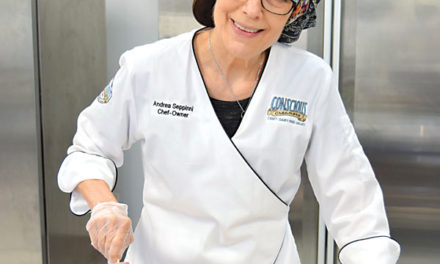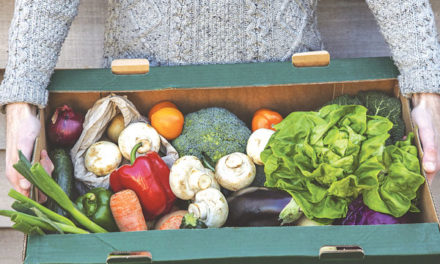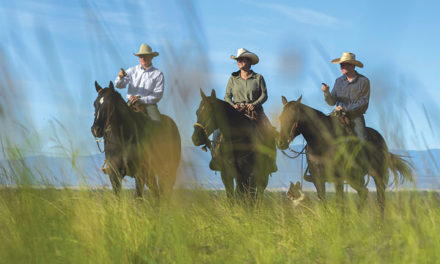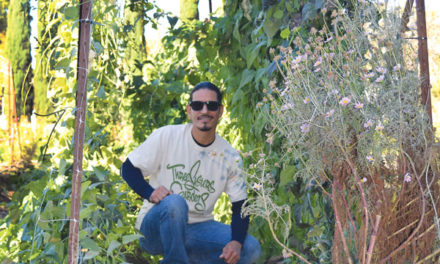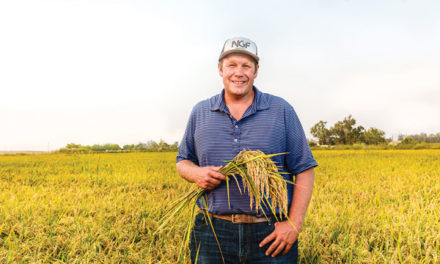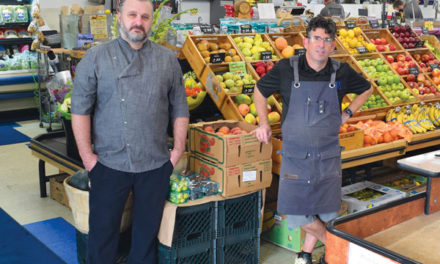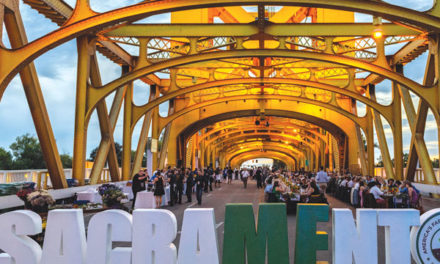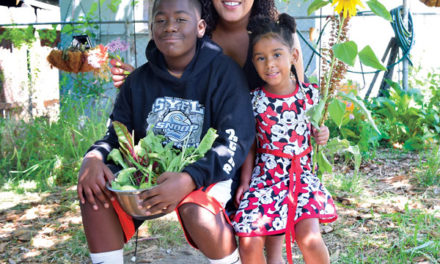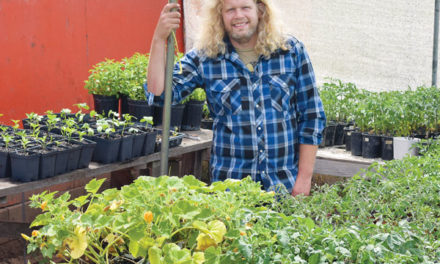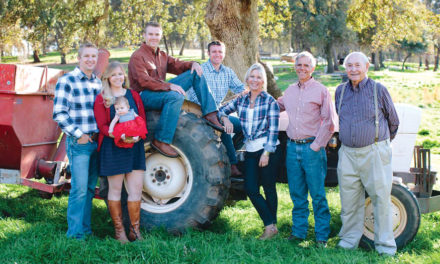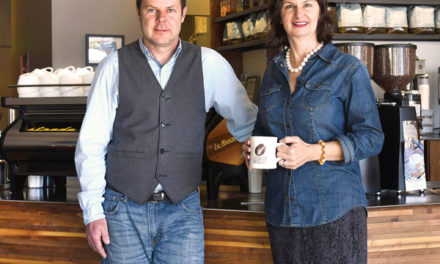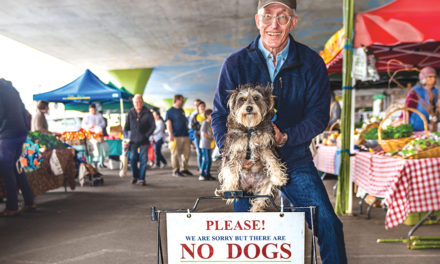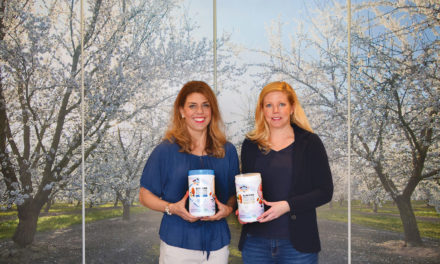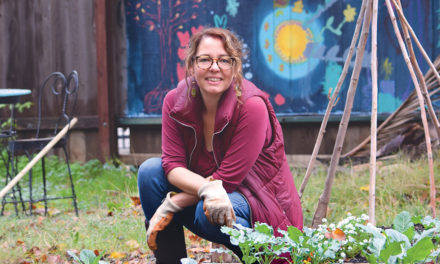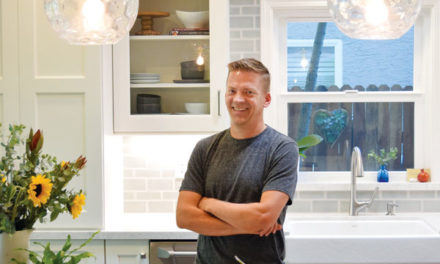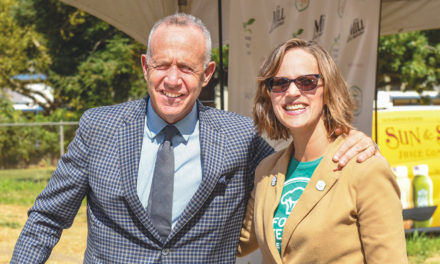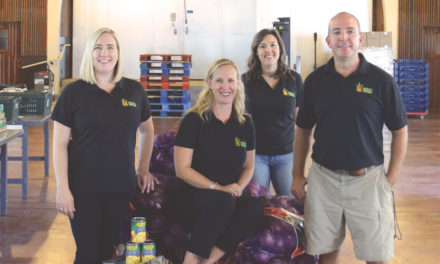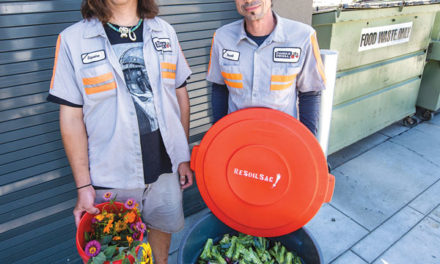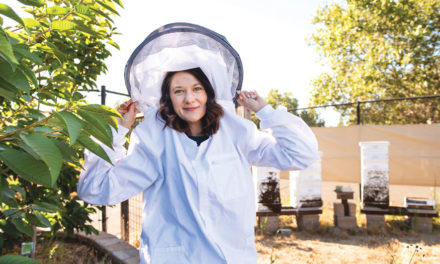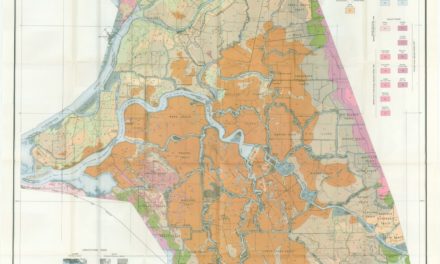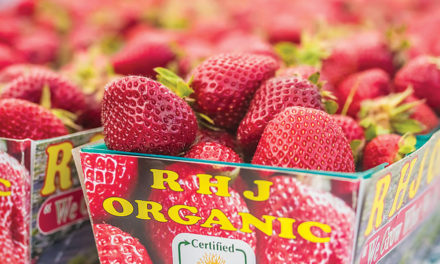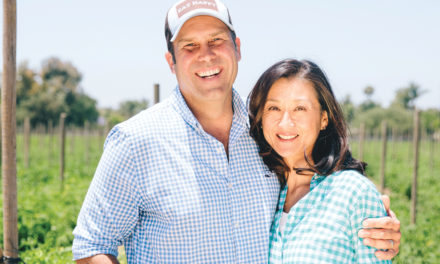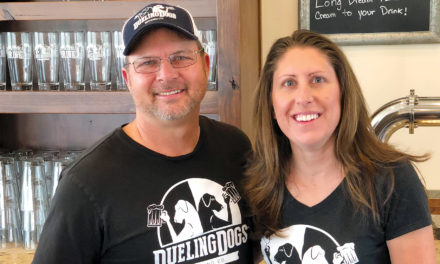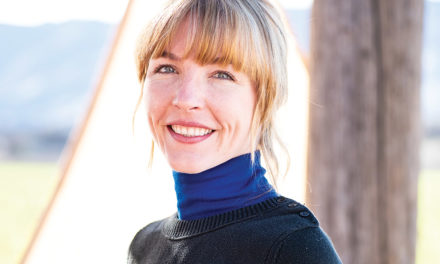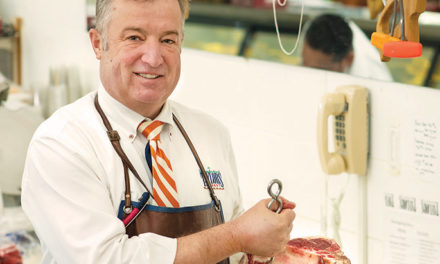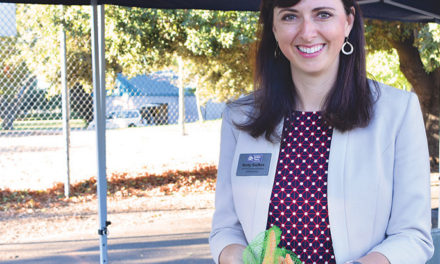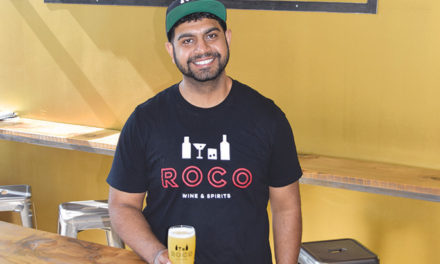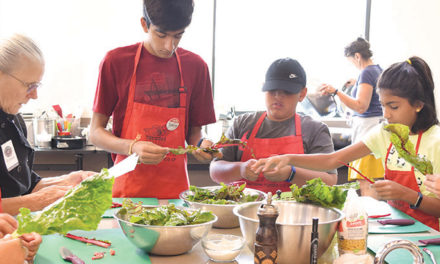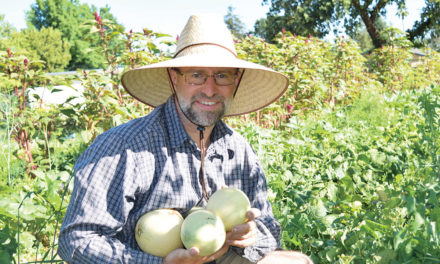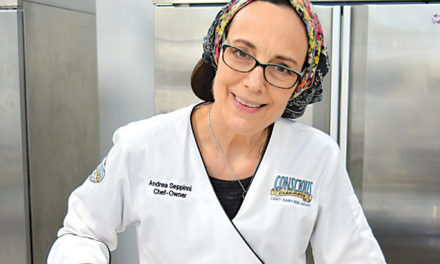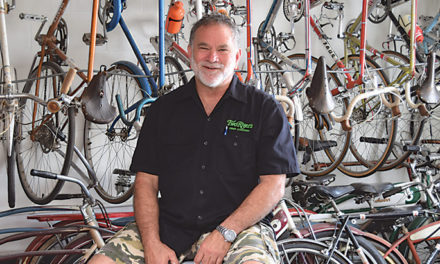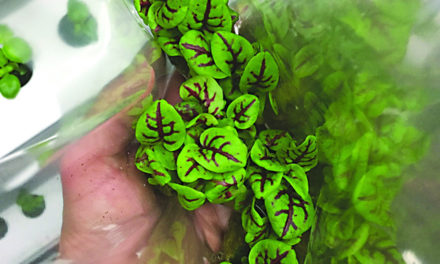Fertile Ground
CapRadio Garden encourages growth and learning in verdant environment
By Tessa Marguerite Outland
August 2019
Peacefully planted beyond the doors of the Capital Public Radio building at Sacramento State is an inviting space covered with vibrant, leafy green and yellow vegetables, blossoming apple trees and happily humming honeybee colonies.
The CapRadio Garden sprouted out of an idea from Craig McMurray, CapRadio director of foundation and corporate development, in 2014 to directly address some major environmental issues, such as water, land use, nutrition, conservation and wildlife.
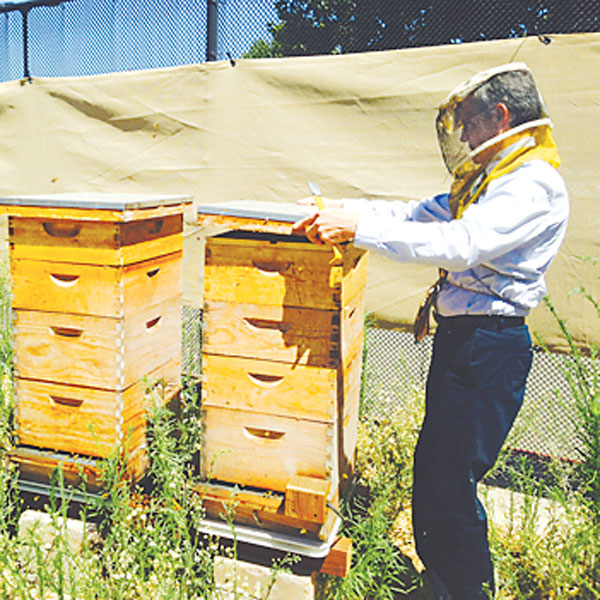
“Everything we experience in this garden is felt across the globe,” says Tashina Brito, Capital Public Radio community relations manager. “This is an easy, digestible way to experience beauty and recognize its importance.”
The entrance to the shady haven is guarded by an antique, grade-school desk as if to inspire growth and a desire to learn. Brito describes the garden as a physical representation of the CapRadio newsroom—directly addressing food sustainability, the environment, policy and the economy.
Nestled within the raised plant beds are seasonal fruits and vegetables all watered through drip irrigation. These growing foods include pumpkins, cucumbers, strawberries, squash and other native North American foods. Brito adds that they also have been trying new varieties of seeds.
Amidst the garden’s floral scents and fertile grounds is the hushed buzz of honeybees. Wild bees pollinate 35 percent of California crops. However, some beekeepers have reported unusually high losses of hives, according to the Environmental Protection Agency. This is largely due to “colony collapse disorder,” which occurs when the majority of worker bees disappear and leave behind their colony. To prevent the extinction of these fascinating and vital insects, environmental changes and regulations are being implemented on local and national levels.
Many hands are involved in the care of the garden, which is maintained primarily through a partnership between Capital Public Radio and Sacramento State, with additional assistance from students at the Sacramento County Office of Education’s Leo A. Palmiter Jr/Sr High School as part of a work-study program. The garden also provides the community with experiential learning opportunities through lessons in nutrition, cooking, agriculture and ecology.
When it is time to harvest the garden’s multi-colored gems of sweet fruits and crisp veggies, the produce is donated to the Sac State ASI Food Pantry, pop-up farmers markets and local nonprofits, including River City Food Bank and Sacramento Food Bank & Family Services. Fresh produce is also stored on campus at Sac State.
The CapRadio Garden Council is comprised of experienced individuals— representing Green Acres Nursery & Supply, Häagen-Dazs Honey Bee Haven, UC Davis, American River College, UCCE Master Gardeners of Sacramento County, Nature’s Source and River City Food Bank—who offer advice and guidance.
With CapRadio’s anticipated move to Downtown in 2020, the garden will continue at its current site with an increased maintenance and guardianship role provided by Sac State.
This verdant garden, bursting with life and movement, is continuously growing and producing life-sustaining plants and insects. It provides nourishment, encourages conversations on environmental issues, and is a tranquil place to stop and smell the honeybees.
The garden is open to the public Monday through Friday from 8 a.m. to 5 p.m. It is not necessary to schedule a tour, but tour appointments can be made by calling CapRadio at (916) 278-8900. For more information, visit capradio.org/garden.
Tessa Marguerite Outland can be reached at tessa.m.outland@gmail.com. Follow us on Facebook, Twitter and Instagram: @insidesacramento.




